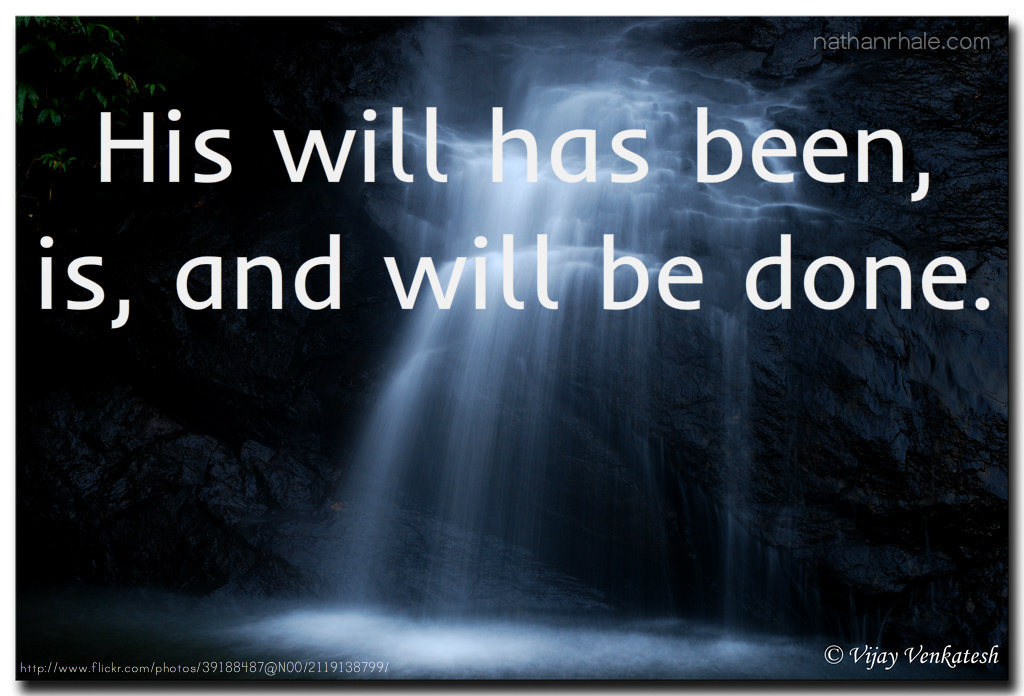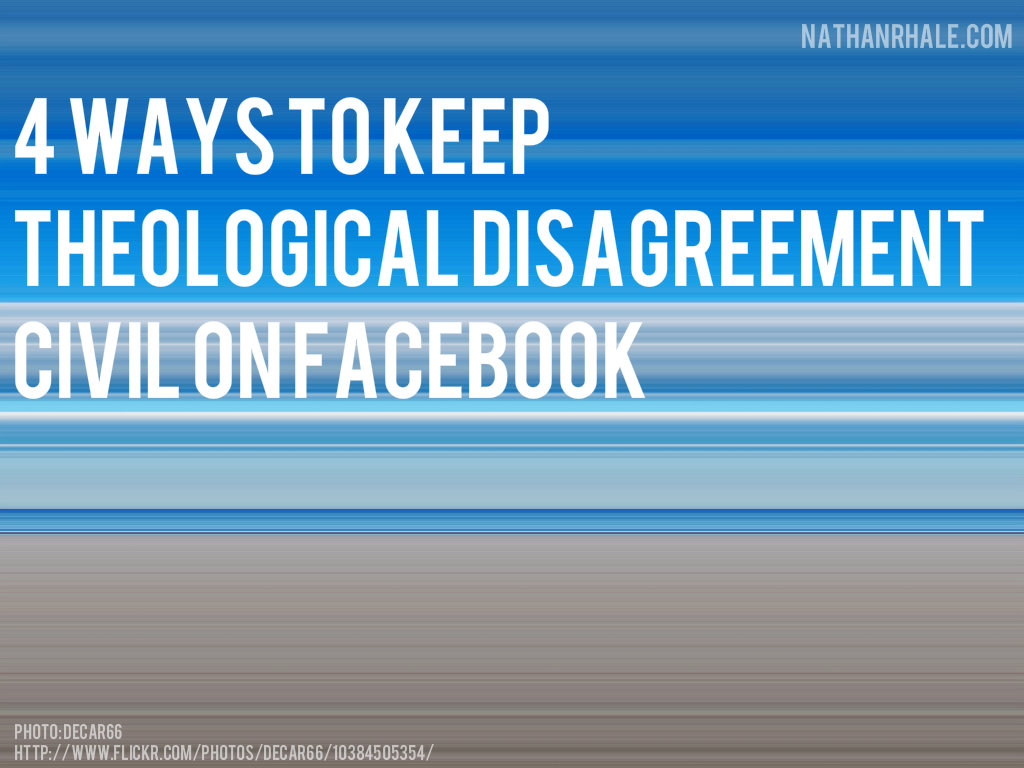-
Christian spiritual growth: the one discipline that can change everything
Of all the spiritual disciplines, which is the most important discipline for Christian spiritual growth?
For the longest time if someone would ask me that question, I would answer “prayer” without hesitation. After all, prayer forms the basic building block of our relationship with God; it’s how we talk to him. For many of us, prayer is how we came to commit our lives to radical discipleship.
A close second for me would have been simply reading the Bible.
What if I told you it wasn’t prayer, or even simple Bible reading was the most important for Christian spiritual growth? What if I told you it wasnt any of the 12 spiritual disciplines as we usually talk about them?
That's right, the one most important discipline for Christian spiritual growth doesn't even usually make the list.
Yet, it hides right under our noses, in plain sight. It’s common sense, really.
It’s memorizing the Holy Scriptures.
Hiding the word of God in your heart. This is perhaps the most neglected of the disciplines, yet the one with the most power to supercharge every other spiritual practice.
Committing the Scriptures to memory lays the best possible foundation for all of the other disciplines!
Bible memorization as a discipline can effectively combine prayer with Bible study and meditation, with the added benefit of lodging the very words of God deep in our minds. How can this not change us?
Memorizing the Scriptures as a discipline will teach us how to pray, give us words when our own fail us, make the wisdom of God part of our very being, strengthen our confidence in God, sharpen our sensitivity to the Holy Spirit, open our heart for contemplation, and can even make us smarter!
If you are looking to grow spiritually, you must start here. Begin by committing the revealed word of God to memory, and watch how he uses this to draw you closer to himself.
-
The path to inner healing
Inner healing starts with Jesus.
Fixing our eyes on Jesus is essential to inner healing, because somehow the more we focus on him, the more we desire to know him, the more we become like him.
 As our minds are formed to be more like Christ’s, we are able by grace to deal with sin and wounds that have been inflicted upon us by evil. As we become more like Christ, we become more pliable to the Holy Spirit, sanctification progresses, and God continues the process of freeing us from all effects of sin. This process (what the Orthodox call theosis) is sometimes slow, but Jesus will certainly be faithful to complete it.
As our minds are formed to be more like Christ’s, we are able by grace to deal with sin and wounds that have been inflicted upon us by evil. As we become more like Christ, we become more pliable to the Holy Spirit, sanctification progresses, and God continues the process of freeing us from all effects of sin. This process (what the Orthodox call theosis) is sometimes slow, but Jesus will certainly be faithful to complete it.In Hebrews four, “God’s rest” has has past, present, and future dimensions. We reflect on what God has already done (the Exodus, Christ’s resurrection) and the rest that those before us have entered in. We also have this promise for the future that still stands (Heb. 4:1) and allows for believers to “draw near with confidence” (Heb. 4:16) for mercy and grace.
Reflecting on God’s promises and the past/present/future reality reminds me of the faithfulness of the God who saves us and allows me to rest content knowing that his will has been, is, and will be done.
This kind of rest is powerful force for forming the mind and body and spirit, because it helps facilitate a state of being where my confidence is firmly rooted in God and his ability and intention to accomplish his holy purpose, regardless of the circumstances I may find myself in.
This kind of rest is the beginning of a deep, divine inner healing.
-
Do I believe?
In Hebrews three, the author compares and contrasts Jesus with Moses, the greatest leader in Jewish history.
The writer of Hebrews states that both are marked by faithfulness, but that Jesus’ faithfulness is different than Moses’. Jesus’ faithfulness, in contrast to Moses’, is “over” God’s house rather than “in” it (cf. Heb. 3:5-6). In chapter 1 and chapter 2, Jesus is set up as supreme over creation, and this theme of supremacy carries over here.
The author brings the concept closer to home for his or her readers–showing that Jesus is the logical and natural fulfillment of the Mosaic leadership example.
The parallel between the Exodus event and Jesus’ work is unmistakable.
The ultimate grand ending of the Exodus is entering the promised land, and the author is quick to point out that those that did not enter this place of rest and refreshment–flowing with milk and honey–were denied because of their unbelief.
The implication is clear: entering God’s rest through Jesus parallels the Exodus/Promised Land story, and belief plays a key role in this.
To find rest, to find our ultimate home in God, we must believe in Jesus.
Take care, brothers, lest there be in any of you an evil, unbelieving heart, leading you to fall away from the living God. (Hebrews 3:12, ESV)
If we are not living in rest and peace, I suppose the question for us, then, is this:
Do I believe?
-
An Embarrassingly Emotional Experience
 I was recently part of a prayer service where I was (for reasons still somewhat unknown to me) touched by the Holy Spirit and overcome with emotion, to the point of weeping. It was simultaneously beautiful and disorienting.
I was recently part of a prayer service where I was (for reasons still somewhat unknown to me) touched by the Holy Spirit and overcome with emotion, to the point of weeping. It was simultaneously beautiful and disorienting.Beautiful because it was in the context of prayer for me and my family by people that love me, and the sense of God’s unconditional love was so strong. Yet it was also disorienting because not only was there no immediately obvious rational explanation for my outburst, but it was, frankly, somewhat embarrassingly emotional.
I think that sometimes our discomfort with Charismatic worship isn’t so much about theology (although there are often legitimate concerns there) but rather how incredibly–and even embarrassingly–emotional displays of weeping, laughing, speaking in tongues, and falling down can be.
Of course, I’m not advocating that the public worship be anything but “decently in order” (cf. 1 Cor. 14:40), but there is something to be said for an uninhibited emotional response to the move of the Holy Spirit, to an increased awareness of his power and love.
Jesus said, “Let the little children come to me and do not hinder them, for to such belongs the kingdom of heaven.” (Matthew 19:14, ESV)
I think of my very young children (four and two) that often don’t know how to process or understand their intense emotions, yet they express them freely without fear of judgment and without any shame. If they are sad, they cry. If I look at them with funny face, they laugh. If they are overcome with affection, they throw themselves into my arms without hesitation.
What if we had this same level of freedom of expression with our heavenly Father? It certainly seems the writers of the Psalms did. Weeping in response to sin and jumping for joy and even shouting are all biblical responses to God.
God himself is an emotional person. He rages. He grieves. He delights. He loves.
He wept.
We perhaps forget that God is in the business of not only redeeming our minds, but our hearts as well.
-
Our God suffers
Chapter two of Hebrews solidifies Christ’s sovereignty in all things, especially salvation.

In a final, powerful statement, however, the humanity of Jesus is underscored when the author reminds us that “he himself has suffered when tempted, he is able to help those who are being tempted.” (Hebrews 2:18 ESV).
Our God suffers with us.
This reminds me of the overriding purpose of the spiritual disciplines: to know Jesus more and to be conformed to his likeness. These practices take time, effort, and sacrifice.
They wouldn’t be worth it, save for the fact they help me know this person who is somehow my friend and brother and king and God, this person who not only died for his people, but rose victorious from death to redeem them from the clutches of death.
The ultimate worthiness of pursuing Jesus at all costs is confirmed.
-
The lost practice of mental discipline
 One of the biggest obstacles for seriously following Jesus in our hyper-connected world is a simple lack of mental discipline, otherwise known as focus and attention span.
One of the biggest obstacles for seriously following Jesus in our hyper-connected world is a simple lack of mental discipline, otherwise known as focus and attention span.Culturally, we’ve succumbed to the temptations of constant distraction and whimsy. If we are not “engaged” (by which we too often actually mean “entertained”) by whatever “content” we are “consuming” we simply move on.
In other words, when it comes to thinking, we tend to give up when the going gets tough.
This makes sustained, deep reflection rare for lots of us. It makes singularly focused worship even more rare, because we’ve abandoned any idea of worship as “the work of the people.” Instead, worship must seem to be (for the “audience,” anyways) effortless.
The result is that we settle for shallow worship, surface-level teaching, and stunt our own spiritual growth.
Yet the Bible teaches us that we must train and discipline our minds (2 Cor. 10:5; Rom. 12:2), and that we know God when we take the time to ponder him and his word (Psalm 1, Phil. 4:8, etc). We are to wrestle with our faith, which necessarily takes time and effort.
How can you get better at sustained mental engagement?
You have to practice.
Take a Bible verse or passage, set a timer on your phone for five minutes, and think about that verse, and nothing else. Consider its meaning, application, context, etc. Memorize it. When your thoughts wander return to your passage. Do this every day for a week. Then up your time to 10 minutes. Do this until you can meditate on a single short verse or idea for 20 minutes.
You can also apply this to your corporate worship time. Make the effort to focus on the sermon and the words you are singing. Take note when your mind begins to wander and do not let it! Bring it back to the idea or topic at hand. Do not allow yourself to become distracted by friends, your phone, shiny graphics on the screens.
The important thing to is to be self-aware enough to realize when you are becoming distracted, and then exercise discipline to bring your mind back into focus.
When you have this kind of self-control, you’ll find that you’re able to think more clearly, resist temptation more effectively, and follow Jesus more wholly.
-
The most unfathomable mystery?
The first chapter of Hebrews is beautiful, enlightening, and foundational for Christian doctrine. It sets up Jesus as God in no uncertain terms, tell just how much of God we see in Jesus: the “radiance of his glory and the exact imprint of his nature” (Hebrews 1:3 ESV).
This is nothing short of breathtaking for me, that somehow the depths of God’s nature–the creator-king of the universe–are revealed in a humble man.
The mystery is unfathomable, yet it provides so much assurance that God is close, knowable, and that he desires to be known by us. Why else would he have chosen this way of salvation for his people?
Jesus is the crux of creation and reigns supreme over everything.
-
Only want Christ
Man is created to praise, reverence, and serve God our Lord, and by this means to save his soul. And the other things on the face of the earth are created for man and that they may help him in prosecuting the end for which he is created. From this it follows that man is to use them as much as they help him on to his end, and ought to rid himself of them so far as they hinder him as to it. For this it is necessary to make ourselves indifferent to all created things in all that is allowed to the choice of our free will and is not prohibited to it; so that, on our part, we want not health rather than sickness, riches rather than poverty, honor rather than dishonor, long rather than short life, and so in all the rest; desiring and choosing only what is most conducive for us to the end for which we are created. ~ Ignatius of Loyola
Our ultimate, primary, overriding desire is meant to be communion with Christ.
Only want that which helps you grow closer to Christ.
Anything else isn’t worth holding on to.
-
It's time for a revival of critical thinking
The scandal of the evangelical mind is that there is not much of an evangelical mind. ~ Mark Noll
Evangelicalism and especially the revivalist tradition have often had a very strong anti-intellectual bent. Mainstream Evangelicalism’s continued emphasis on religious experience to the exclusion of critical thought is well intentioned, but ultimately self-destructive.
We now have generations of people in the church that either simply don’t care or have developed an underlying suspicion of science and logic.
Unfortunately, this leaves many Christians completely vulnerable to even the most easily refuted attacks against against the reasonableness of our faith.
"...in your hearts honor Christ the Lord as holy, always being prepared to make a defense to anyone who asks you for a reason for the hope that is in you; yet do it with gentleness and respect, (1 Peter 3:15, ESV)"
The fact is that the Christian faith is grounded in the historical reality of the resurrection of Jesus, and we have good reasons to believe our confession is true. We have nothing to fear from solid reasoning or science.
God can handle our questions and the Christian faith is not shaken by a better understanding the world that God has created.
We need to be teaching the basic principles of valid reasoning and how to apply them not only in theological study, but in everyday conversation.
Although basic critical thinking skills should be part of everyone’s basic education, this is unfortunately not the case.
It’s time to make critical thinking a foundational part of our discipleship efforts.
-
4 ways to keep theological disagreement civil on Facebook
 Have you ever noticed how theological conversations on Facebook tend to disintegrate quickly? Anger, accusations, and off-the-cuff rhetoric now seem to be standard procedure. I know a lot of Christian leaders that choose to simply not ever engage on Facebook, because it tends to go downhill so quickly.
Have you ever noticed how theological conversations on Facebook tend to disintegrate quickly? Anger, accusations, and off-the-cuff rhetoric now seem to be standard procedure. I know a lot of Christian leaders that choose to simply not ever engage on Facebook, because it tends to go downhill so quickly.I’m convinced it doesn’t have to be this way. You can choose to join or start a conversation in a Christ-honoring way and make a positive impact in the social media space.
Here are a few things to keep in mind as you venture out into the waters of online theological controversy.
1) Write with grace
Remember that you are an ambassador for Christ in this moment. You are not primarily representing your church, your employer, or even yourself. You are representing Jesus himself. Find points of agreement with the person you are conversing with, and make the effort to genuinely understand their ideas.
Keeping the the tone light and respectful will go a long way toward keep the conversation civil. And speaking of tone, remember that things don’t always come across the way you intend in the written medium. If in doubt, rephrase or explicitly state how you want your idea to come across (for instance: “This is a sincere, not sarcastic question…")
Never respond when frustrated, angry, or flustered. Take time to cool off. It can always wait until tomorrow. Avoid deliberately inflammatory rhetoric like the plague. Don’t call people names and don’t throw accusations of heresy around lightly.
2) Know the limits of the medium
Facebook threads get pretty unwieldy when the comments get too long. Honestly, it’s just may not the best place to lay out your thoughtful, logical argument for whatever theological truth is under discussion. It seems unlikely to me that a very long response is even very likely to be read. Be concise, articulate, and accurate.
3) Don't aim to convince
Don’t always try to fully persuade the other person of your point of view, especially if you can’t lay out your whole argument in a thorough yet brief way. Instead, provide a compelling thought that could spur further discussion or exploration, and offer to discuss the issue in more detail via private message or email.
4) Know when to bow out
If the conversation starts to get repetitive (“As I said in my previous comment,” “Let me restate what I’m actually saying…") the discussion may be over. If it’s clear you each understand the other’s position, yet neither of you is ready to change their mind, then gracefully bring the thread to a close. If it’s obvious your conversation partner isn’t going treat your arguments seriously or if the other person starts making personal attacks and assumptions, it’s time to stop. Don’t be afraid to write something like this when the time is right:
“I totally understand your point of view, and I hope I’ve been able to communicate mine accurately. Although we disagree, I’m grateful for what we have common. Grace and peace!”
* * *
Don’t waste the opportunity to engage in theological conversation on Facebook. Just choose your battles wisely and remember it takes effort, forethought, and often extraordinary amounts of patience.
-
Why we have to get discipleship right the first time
 In educational psychology, there are a number of “laws of learning” or “principles of learning.” One of those is called the law of primacy, which basically states that when a student learns something for the the first time, a strong and almost unshakable impression is made.
In educational psychology, there are a number of “laws of learning” or “principles of learning.” One of those is called the law of primacy, which basically states that when a student learns something for the the first time, a strong and almost unshakable impression is made.“Unlearning” or “reteaching” ideas is therefore incredibly difficult.
If a student learns incorrect information regarding a topic, the teacher faces an uphill battle when it comes to repairing the mistake.
This is a huge reason why serious discipleship is so lacking in various parts of the Christian culture. New Christians have basically been taught (often implicitly and usually unintentionally) that learning a few theological basics and having the occasional “quiet time” is enough grow deep in their faith.
Many have actually learned to articulate the Gospel in terms and ways that are either partially wrong or don’t make sense to the culture at large. This makes training for effective evangelism and apologetics that much more difficult.
Those of us engaged in the work of discipling others (and that should be all of us) need to remember the importance of getting it right…the first time.
-
Keeping track of your sins
 In the Spiritual Exercises of Ignatius of Loyola, the saint lays out a thirty-day program for discipleship, generally meant to be completed as part of a secluded retreat. The first week was devoted to moving the person being discipled toward a genuine sorrow over their sin, as well as beginning to overcome it.
In the Spiritual Exercises of Ignatius of Loyola, the saint lays out a thirty-day program for discipleship, generally meant to be completed as part of a secluded retreat. The first week was devoted to moving the person being discipled toward a genuine sorrow over their sin, as well as beginning to overcome it.As part of this time, the disciple was required to take daily inventory of their sins, pausing three times a day to reflect on the previous hours. They were to make a note on paper every time they committed a particular sin. Each day they would reflect back and strive to make improvement on conquering these specific sins.
To my Reformation-influenced mind, this seems a bit legalistic and formulaic, but I don’t think it really is. The prayers Ignatius suggests do call for God’s grace in this. For instance, one of the exercises ends with a focus on “mercy, pondering and giving thanks to God our Lord that He has given me life up to now, [and] proposing amendment, with His grace, for the future.”
I don’t think this was a “works righteousness” effort. I think there’s something to how seriously Ignatius and the men he discipled took their sin, and how they methodically determined to eradicate as much as possible from their lives, primarily by beginning to actually understand the gravity of their sin and turning their attention from it to Jesus. Once this change of heart and mind was accomplished, deeper contemplation on the life of Jesus could happen.
I see this sort of exercise as a reminder to live fully aware of God’s great grace and mercy, and–with God’s help–continue on in the struggle against sin.
-
7 Lost Areas of Discipleship
On a whole, I agree with J.I. Packer that the Church at large just isn’t taking God seriously. At least not as seriously as we should.
Deep discipleship just isn’t in the program for many local faith communities. I’m beginning to think that if your discipleship programs don’t cause some people to take a step back and say, “Whoa, that’s gonna be pretty tough” then you’re doing something wrong. Discipleship is death to self. It’s serious business.
The discipleship programs that are prevalent tend to focus on the basic spiritual disciplines of scripture reading and prayer. This is foundational, of course, but not only are there more spiritual disciplines that are essential for spiritual growth, there are entire spheres of our life that are being neglected as areas for discipleship.
Specifically, I’m thinking of:
1) Personal Finance
Stewardship training is often limited to guilt-driven "encouragement" to tithe or "sacrificial giving" to fund buildings. What about teaching people how to live simply, to re-order their values, and to discern where the greatest needs are in their sphere of influence?2) Time Management
How is this not a discipleship issue? In U.S. culture especially, it seems like there should be training on this. Why did God take a Sabbath? Why does he ask us to emulate him in this? What is the spiritual value of rest? Practically, what does it look like to honor God with how we spend our time? These are things that should be addressed with believers young and old.3) Physical Health
Diet and exercise are rarely, if ever mentioned as part of regular discipleship. Gluttony has never been considered in any discipleship group I have been a part of. What we eat matters. How we steward our bodies matter. Every part of our being belongs to Jesus, including our physical selves.4) Singleness
Is it just me or do "singles" programs seem to be more directed at helping Christians find a mate than helping them find their whole identity in Christ as they are? Where is the talk of the great ministry that singles can have? The truth is that singles can devote their lives to ministry in ways impossible for married Christians. Why isn't this celebrated and understood as a possible calling worth pursuing?5) Parenting
The trend is to offload discipleship to the church. Of course, the whole community has a part to play in raising children, but we bear the primary responsibility for the spiritual health of our own offspring. Is it really enough to make sure they are "involved" in Sunday School or Youth Group and read a Bible story every night? Who is teaching people how to pray for their children, how to help them internalize the Word of God, how to communicate why we believe what we believe?6) Social Media
I think a lot of Christians just don't know how to communicate about theology and emotionally-charged, big ideas with grace and patience, and especially not in the written medium. This is a problem since so much of our interactions with people we know and people we don't know are written through social media. We have to start looking at this as a vital area of ministry and recognize that we continue to represent Christ in the digital realm.7) Making Disciples
Every disciple of Christ is called to disciple others. Maybe not formally. Maybe not as part of a program. But every Christian is responsible to be ready to share the reason for their hope, and then to help others follow Jesus with their whole being. Are we equipping the saints for this work, or are we simply using them to attract a few more people to the pews (slash comfy theatre-style seating)?* * * At the end of the day, it boils down to this: Discipleship is never just about getting the basics of Christian belief and developing a "personal quiet time."Following Jesus is our whole life, and we shouldn’t expect people to just figure it out.
We’re in this together, so let’s start coming alongside one another, and be intentional about training in these areas.
We’re not meant to do it alone.
-
My neighbor spent Christmas alone and it was my fault.
“Never worry about numbers. Help one person at a time and always start with the person nearest you.” ― Mother Teresa
We had a wonderful family Christmas. Me, my wife, and my two beautiful kids. Presents, cinnamon rolls, music, the tree, lights, the Christmas story…praying and singing together…walks around the neighborhood with new scooters and toy strollers for new dolls…more cinnamon rolls. It was picturesque, really.
As part of our Christmas we dropped cookies off with a few of our neighbors…we had been feeling a desire to reach out for a while.
At 9 p.m. on Christmas night, a single gentleman that lives across the street came by our house to say thanks for the cookies and give us a last minute Christmas card. When I asked him how his Christmas Day had been, he gave a little uncomfortable laugh, shrugged, and said,
“Well, you know, it was okay…just me and the dog…”
Despite the awkwardness of the moment, he was obviously incredibly grateful for even the little bit human contact our card and cookies afforded him.
I’ve lived across the street from this kind, friendly, Christian man for over year. I never asked him his plans for Christmas. I had no idea that he had no place to go and no one to be with on Christmas morning.
There I was, having a perfect Christmas while my literal neighbor, my Christian brother, sat alone across the street. A day like most others, I’ve come to realize.
* * * Since when, biblically speaking, did our neighbor stop being our neighbor? I mean, I get that the story of the Good Samaritan in Luke 10:29-37 expanded our definition of neighbor to all those we come in contact with, but at what point did it exclude the people we live closest to?
I’m gonna go out on limb and say it didn’t.
I’ve created a life where I am so busy and so concerned about other things that I barely recognize the need right in front of me.
I don’t even know the names of the people that live in the house directly across from me.
It’s easy to judge the priest and religious leaders in story that Jesus told, because they were blind to their neighbor. They didn’t show love to the person right in front of them that so desperately needed it.
Turns out I have same problem.
-
Church is a vineyard
By this my Father is glorified, that you bear much fruit and so prove to be my disciples. (John 15:8, ESV)
Gregory Nazianzen calls the church a Vineyard, “into which all are summoned as to their place of work, as soon as they are brought to the faith."1
Cultivating a quality vineyard takes time, patience, science, study, knowledge, art, dedication, passion for the work. Vineyards require constant care. As vineyards grow, they need many people doing many different things.
Vineyards become a sustaining source for families, a heritage and a legacy. Whole communities and countries can be known because of their vineyards.
Is this how we approach being baptized into the Church?
Is this how we think of being part of our local Christian communities, and part of the Church universal? Is this gathering of believers a living legacy to us, something that we will toil in, so that its fruit might bless the whole world?
Is it our life’s work?
- Edward Harold Browne, An Exposition of the Thirty Nine-Articles, p. 455 ↩
-
Martin Luther actually said this. No joke.
Recently, a prominent Reformed blogger I read (and generally appreciate) asserted that the the Roman Catholic Church is a false church. Of course, this isn’t the first time I’ve read something like this. It seems to me that this is par for the course among Protestants of all kinds.
The thing is, apparently even Martin Luther wouldn’t have made such a serious accusation, despite his many harsh words directed toward the Roman Catholic Church and the Pope.
Luther, for instance, said,
We call the Church of Rome holy, and the bishops' sees holy, though they be perverted...there are still Baptism and the Sacrament, the Gospel, the Scripture, the ministry, the name of Christ and God. Therefore the Church of Rome is holy.
Luther doesn’t stop there. He continues:
Wherever the Word and Sacraments substantially remain, there is the holy Church.1
The fact that even the Father of the Reformation realized the Gospel still resided in the Roman Catholic Church deals a mighty blow to the idea of the Gospel as basically equivalent to the doctrine of justification by faith alone.
Even Calvin acknowledged the validity of Roman Catholic baptism and said,
...some ruins of a scattered Church exist there...2
Obviously the Reformers had deep and divisive differences with the Roman Catholic Church. Yet, I am finding in some of their writings a charity that is strangely absent from mainstream Reformation Christianity.
- As quoted in An Exposition of the Thirty Nine-Articles by Edward Harold Browne, p. 464 ↩
- Ibid. ↩
-
This Book Will Have the Most Impact on My Ministry This Year
I believe that mentoring relationships should be at the core of any discipleship program, and they are the foundation of my own ministry. Spiritual direction is something I approach with with a degree of fear and trembling (cf. Matt 18:6), so I’m always on the lookout for resources to help me be better at what I do.
Mentor Like Jesus was hands-down the most influential book I read for my ministry last year. As I wrote in my review, it’s geared toward older men in a different stage of life than me and the guys I mentor, but the principles are solid and can be applied to anyone looking to disciple a group of others using a model similar to the one Jesus used with his own inner circle.
When it comes to giving spiritual advice and developing one on one relationships, Spiritual Mentoring by Keith R. Anderson and Randy D. Reese is just as important.
Drawing on the rich Christian tradition of spiritual direction, it provides a much-needed framework for guiding others into a deeper relationship with God.
The book features profiles and selected readings from some of the most renowned spiritual directors in Christian history, including Augustine, Aelred of Rievaulx, and John of the Cross. Each figure takes a different approach to the task of being a spiritual guide for others, and each brings something very valuable to the table. For example, Teresa of Avila’s metaphor of the seven rooms of the heart was particularly insightful to me as way of understanding the “movements” of the heart toward God, and the thirty-day program for guided contemplation from Ignatius gave me a possible structure for starting new formal relationships.
Spiritual Mentoring is a must-read for anyone who finds themselves giving spiritual advice and entering into relationships where they either formally or informally serve as a spiritual guide. While it is not a “blueprint” or “step-by-step” guide by any means, the authors provide theological grounding and practical help for giving and receiving spiritual direction that is anchored in ancient wisdom.
Just as Mentor Like Jesus transformed how I work with mentor groups, Spiritual Mentoring has already been key for me as I plan how to be most effective in my one-on-one mentoring relationships.
There’s no doubt that it will shape vital aspects of my ministry this year, and I think it could do the same for yours.
-
4 Ways to Start Well This New Year
The New Year is almost upon us. Of course, New Year’s Day is just a day like any other, but the culture and customs surrounding it can provide a valuable way to mark the beginning of something new. This is a chance to start over, reinvent yourself, propel your ministry forward, recommit to a life of radical discipleship to Jesus.
Plan your ideal week
Of course, your week will never actually be ideal, but doing this will give you framework to work from even if you have to rearrange your schedule on the fly. Creating a visual calendar in a spreadsheet will help you prioritize and be realistic about the time that you have and how you’d like to spend it. Michael Hyatt has a great post on doing this along with a sample spreadsheet.
Choose a word for the year
Think about the one word that you’d like to be a summary for what you’d like to accomplish this year. Maybe “Discipleship,” “Family,” or even “Forgiveness.” How can you focus your life on the most important things this year? Pick a word that will be constant reminder for you. As part of this you may want to develop a life theme and choose a word that plays into that in some way.
Write out your major goals for the year
Now that you’ve chosen a word or theme for the next 12 months, write out 3-6 major things you would like to accomplish. Consider focusing on developing habits (which have a long-term return on investment) and spiritual disciplines that support your theme for the year. Don’t just put down the goals themselves, create action steps and write those down, too.
Get some rest
You can’t start the New Year well if you’re tired and burned out. Get the rest that you need–physically, emotionally, and spiritually. You may have to make some sacrifices for this, but I know I’ve never regretted taking the time and resources to rest when I really needed it. Sometimes all you need is a single day of solitude to rest and recharge.
Get ready, be prepared and make the most of the gift of starting another year.
-
How to Start Your New Year Refreshed and Recharged
With the new year arriving in just weeks, it’s time to rest up and get ready for a new season of life. Don’t let yourself get caught up in the busyness of the holidays! You don’t want to start the new year frazzled and scrambling to catch up.
A single day of solitude might be just the jump start you need to begin a brand new year with intentionality and energy.
Solitude is an essential spiritual discipline. In The Celebration of Discipline Richard Foster says, “The purpose of solitude is to see and hear” (p. 98 - click here for my full review)
Take a decent chunk of time (I say at least 4-6 hours, and more if you can) and head out to a relatively isolated place. Good ideas in the city are local libraries, churches with nice grounds, a botanical garden. If you can get out in nature on a trail, lake, or beach, so much the better. Avoid places like your neighborhood coffee shop or mall.
Spend the time to read a long portion of Scripture (maybe even a complete book) and pray about everything on your mind. Bring a journal so you can write thoughts and prayers down as they come to you. Keep your electronic devices down to a minimum to in order to kill distractions; at least turn of notifications so you don’t spend this valuable time on Facebook and Twitter.
This is an ideal time to reflect back on last year. Ask yourself some questions and write down the answers:
What went well? What challenges did you face? How did they prepare you going forward? What obstacles can you see ahead of you now? How did God work in your life last year to prepare your for the next one? If you could accomplish one thing each in your family life, as an individual, and at work this year, what would it be?
Consider bringing a book other than the Bible, but only if it is essential to your goals for the new year. Otherwise devote the time to prayer, reflection, and planning.
You’ll find taking a day like this to be spiritually, emotionally, and intellectually refreshing.
Start your year off right…start with solitude.
-
"Ecumenism of blood." Powerful Words From Pope Francis on Christian Unity
Pope Francis, in a response to whether or not ecumenism is a priority for him:
For me, ecumenism is a priority. Today, there's the ecumenism of blood. In some countries they kill Christians because they wear a cross or have a Bible, and before killing them they don't ask if they're Anglicans, Lutherans, Catholic or Orthodox. The blood is mixed.
“Unity is a grace that we have to ask for.” Wow. Let’s listen to this guy and get on our knees and start praying for unity.For those who kill, we’re Christians. We’re united in blood, even if among ourselves we still haven’t succeeded in taking the necessary steps towards unity and perhaps the moment hasn’t arrived. Unity is a grace that we have to ask for.
Although visible unity is not a reality, Roman Catholic, Orthodox, and Protestants are united by the blood of their martyrs, and most of all, by the blood of Jesus Christ, who gave himself not just for one sect of Christianity but for the whole Church.
Read the full post: Francis calls anti-Christian violence ‘ecumenism of blood’
-
Level-Up Your Concentration, Get More Done With Focus@Will
When you need really focus in to write that sermon, finish that blog post, complete a project, or get administrative tasks out of the way, do you just turn on Pandora and get to work?
Turns out, popular music in written to connect with you on conscious level (emotions and thoughts) so it can actually be a distraction!
Music service Focus@Will promises to deliver music that helps you get in the zone and get more done, without distractions.
Focus@Will is like a Pandora that only plays scientifically formulated playlists of instrumental music. Their tracks have been remixed and hand-picked to increase focus. According to Focus@Will, your attention span could increase up to 400%!
Focus@Will displays a simple music player with peaceful nature scenes in the background and countdown timer. The idea is that you give yourself a predetermined time-period to work on a project. The sound of a bell alerts you when your time has run out, and the app also has a built-in productivity tracker that helps you see improvements in focus.
The music is great and there are a variety of styles to choose from, from Classical to Up Tempo, to Cinematic & Acoustical.
There are free and paid accounts available at Focus@Will. The free account doesn’t include the productivity tracker and limits the variety music and the countdown timer. You can either go month to month for $3.99 or sign up for the whole year at once for $2.92 per month (25% off).
I used the service for most of my morning and part of my afternoon, and I really enjoyed it. It seems to me to be better for its intended purpose than Pandora, and it’s quite affordable. You really need the paid version to get long-term value out the service; the free offering is more like a demo or trial.
Overall I think Focus@Will is a good value for you what you get, and if you find yourself often using music to help you “get in the zone” for work, you really can’t pass this up.
-
What About Hitler? The Myth of Ineffective Pacifism
When it comes to the non-violent message of Jesus, many people become troubled because of the what if scenarios.
What if my loved ones are attacked? What if I have no choice but to resort to violence in order to protect the innocent? And what about Hitler? Pacifism couldn’t have stopped him. Right?
It is important to remember that the way of Jesus is often counter-intuitive (the last shall be first, give up your life to gain it, etc) and that our call is to obedience and faithfulness, not effectiveness by our measure of such a thing. The Holy Spirit often uses the foolishness of the world to accomplish God's will supernaturally, and his power is made perfect in weakness.The “what if” scenarios that tug on our heart strings also often have some faulty assumptions like:
- Our choice is between violent action or no action.
- Violent response would necessarily be the most effective in restraining evil.
Both of these are false assumptions. Pacifism comes from “to pacify” or make peace. It is not standing passively. We have many choices in these situations like prayer, verbal witness and appeal, surprise, fleeing, hiding, non-lethal restraint, placing ourselves in front of an attacker to shield other victims, etc. Christians should always be willing to die for another person while seeking the Holy Spirit’s guidance for a creative “third way.”
You’ll notice I listed non-lethal physical restraint there…pacifism includes a spectrum of physical interference that is not necessarily black-and-white. The cutoff points are retaliating blows (per Jesus' instruction in Matthew 5:39) and by extension intentionally lethal force.
Christians' highest allegiance is the Kingdom of God. If Christians should not band together as a church in organized military action to further Kingdom justice, how could they as individuals join a secular national identity attempt it? Secular governments are used by God no matter their actions, yes, but they are not theocracies and have no authority to cause Christians to "advance" justice through violence.Christians should be known as peacemakers. We are aliens in these countries we live in. We cannot have this witness while fighting their wars.
Regarding Hitler--if the German Church had been a pacifist Church, the Nazi regime would have simply sputtered out. A huge part of the problem was weak discipleship in the church and willingness to take up arms and fight for the powers-that-be. If the Church had been a peacemaking church it would have avoided war in the first place. So war broke out anyway...what is the Church to do?Go to the battlefields, dress the wounded on all sides, love our enemies, disrupt supply lines, pray, pray, pray, stand in front others about to get shot, and have faith that God will use these counter-intuitive means because that's what he does. -
Jesus had his disciples buy weapons. What's up with that?
How could a non-violent Jesus ask his disciples to buy swords, as he apparently does in Luke 22:36-39?
And he said to them, “When I sent you out with no moneybag or knapsack or sandals, did you lack anything?” They said, “Nothing.” He said to them, “But now let the one who has a moneybag take it, and likewise a knapsack. And let the one who has no sword sell his cloak and buy one. For I tell you that this Scripture must be fulfilled in me: ‘And he was numbered with the transgressors.’ For what is written about me has its fulfillment.” And they said, “Look, Lord, here are two swords.” And he said to them, “It is enough.” (Luke 22:35-38, ESV)
It's important to note that there were at least 11 disciples hanging out and only two swords--hardly enough for a decent self defense of the group. Yet Jesus says in that passage, "it is enough!" The question is, why swords, and why only two?Prophetic Action
In Luke 22:37 Jesus makes the connection between buying the swords and fulfilling the prophecy "he shall be numbered among the transgressors."Although Judas had betrayed his whereabouts, they still could have needed some excuse to make the arrest. An assembly of radical Jews with a couple weapons could have done that, and Jesus had clearly been stirring things up for some time.
Strong Language
Many commentators think that Jesus was using metaphorical language to urge his disciples to prepare spiritually for coming hardships. His statement "it is enough" is actually a rebuke of the disciples bringing literal swords. Just a few verses later Jesus stops Peter from using a weapon.A basic principle of biblical interpretation is that we use the clear passages to shed light on the less clear passages. “Turn the other cheek” (Matt. 5:39) and “love your enemies” (Matt 5:44) are explicit and easily understood, so they must enter the discussion as we consider the meaning of this passage.
Given the general thrust of Jesus' clear teaching and example, it seems most likely that Jesus was either deliberately provoking the authorities in order to fulfill prophecy and force a confrontation, or speaking metaphorically.
Up next: Addressing the myth of ineffective pacifism.
-
Doesn't Violence in the Old Testament Mean that Pacifism isn't Biblical?
A common objection to Christian non-violence is often articulated as follows:
A unified view of Scripture demands we accept justified violence based on the Old Testament. It takes unnecessarily complex hermeneutics to wiggle out of the fact that God both commands war (the invasion of Canaan) and instituted laws for self defense and capital punishment in the Mosaic Law.
A close look reveals this isn’t true.
On the national front, we have in the Old Testament a defined nation-state (Israel) that is being directly used by God to punish surrounding people groups and nations. This is holy war (commanded by God) and is restricted to Israel. All other nations that go to war are basically condemned, even as God says he will use them for his purposes to accomplish justice and teach other nations. In the NT, however, Jesus reveals to us through the Apostle Paul that God’s chosen people is no longer a single nation-state, but rather a gathering people across national/ethnic boundaries whose fight is not against flesh and blood (cf. Eph. 6:12; Gal. 3:38). The battle lines and purposes have been redrawn.
This is a fairly straightforward understanding of Old Covenant/New Covenant. There is continuity (a chosen people) but a tweak toward perfection (no longer defined by human politics, ruled not by humans but by Jesus at the head via the Holy Spirit, etc). The church stands as a light to the nations by no longer waging holy war, rather living as ministers of the reconciliation (cf 2 Cor 5:18) that Jesus brought between God and man, peaceful ambassadors for Christ if you will.
On the individual level, we see Jesus recasting the OT law in the Sermon on the Mount (cf Matt. 5:38-42). “You have heard it said…but I say to you…” is the refrain. His teaching on retaliation is not confined only to being persecuted for being his follower–it is a perfection of a concept (“an eye for an eye”) that is a “rule of life.” The examples that Jesus gives of getting slapped, giving up one’s tunic, and going the extra mile are likewise not things that happen as a result of special persecution, but were daily events for Jews and others living in Roman-occupied land. Given the relation of this to the Mosaic Law, his previous statements on the blessedness of peacemakers, and his subsequent comments on loving your enemies (which for 1st century Jews meant real, dangerous enemies, not just those that weren’t nice to them), it’s tough to see these statements as anything but broadly applicable.
This isn’t writing off the Old Testament, it’s seeing the Old Covenant as fulfilled in Christ, and Christ as a clearer revelation of God’s will and character.
Next up: Why non-violent Jesus asked his disciples to buy swords in Luke 22:36.
-
A Brief, Scriptural Defense of the Non-Violent Message of Jesus
This week’s Advent focus is peace, so I thought it would be appropriate to write about something that’s been developing in my theology for some time: the implications of Jesus as the Prince of Peace (cf. Isaiah 9:6).
Clearly, Christ came to make peace between God and man. As we follow Christ, we are called to be peacemakers ourselves by the power of the Spirit (cf. Matt 5:9; 2 Cor 5:18-19).
Looking at the plain words of Jesus in their historical context–along with the rest of New Testament–convinces me that a non-violent ethic is explicitly and consistently affirmed throughout the Scriptures. Non-violence, also called pacifism, is an essential part of living out the implications of the Gospel.
The Scriptural Argument
Jesus explicitly commands an ethic committed to non-retaliation, even when one is unjustly attacked. Remember that persecution isn’t just political or social marginalization; it is often marked by violent oppression.
“You have heard that it was said, ‘An eye for an eye and a tooth for a tooth.’ But I say to you, Do not resist the one who is evil. But if anyone slaps you on the right cheek, turn to him the other also." (Matthew 5:38-39, ESV)
“You have heard that it was said, ‘You shall love your neighbor and hate your enemy.’ But I say to you, Love your enemies and pray for those who persecute you, so that you may be sons of your Father who is in heaven. For he makes his sun rise on the evil and on the good, and sends rain on the just and on the unjust." (Matthew 5:43-45, ESV)
Then they came up and laid hands on Jesus and seized him. And behold, one of those who were with Jesus stretched out his hand and drew his sword and struck the servant of the high priest and cut off his ear. Then Jesus said to him, “Put your sword back into its place. For all who take the sword will perish by the sword. (Matthew 26:50-52, ESV)
Jesus answered, “My kingdom is not of this world. If my kingdom were of this world, my servants would have been fighting, that I might not be delivered over to the Jews. But my kingdom is not from the world.” (John 18:36, ESV)
Paul affirms and clarifies the teaching of Jesus on this point, calling us to radical, self-giving love even for our enemies:
Bless those who persecute you; bless and do not curse them. Rejoice with those who rejoice, weep with those who weep. Live in harmony with one another. Do not be haughty, but associate with the lowly. Never be wise in your own sight. Repay no one evil for evil, but give thought to do what is honorable in the sight of all. If possible, so far as it depends on you, live peaceably with all. Beloved, never avenge yourselves, but leave it to the wrath of God, for it is written, “Vengeance is mine, I will repay, says the Lord.” To the contrary, “if your enemy is hungry, feed him; if he is thirsty, give him something to drink; for by so doing you will heap burning coals on his head.” Do not be overcome by evil, but overcome evil with good. (Romans 12:14-21, ESV)
This is key for Christians: we are to imitate Christ.
Therefore be imitators of God, as beloved children. And walk in love, as Christ loved us and gave himself up for us, a fragrant offering and sacrifice to God. (Ephesians 5:1-2, ESV)
Christ loved us and died for us–his enemies–and never once responded violently to those that abused him.
For to this you have been called, because Christ also suffered for you, leaving you an example, so that you might follow in his steps. He committed no sin, neither was deceit found in his mouth. When he was reviled, he did not revile in return; when he suffered, he did not threaten, but continued entrusting himself to him who judges justly. (1 Peter 2:21-23, ESV)
We must ask ourselves these questions:
Are the Scriptures clear on this front? Given that the witness of the early church is non-violent, why do many Christians now condone violence? Is there a solid biblical case for or against violence as a God-blessed option for the Church? For individuals? Is the non-violent idea difficult for me to accept? If so, is it because it is not clear in the Scriptures, or because it does not seem like it would be effective according to my own standards?
Conclusion
An ethic of non-violence is actually explicit in the teachings of Jesus and is affirmed in the rest of the New Testament. It is a distinctive mark the of the New Covenant; God’s people are to be known as peacemakers. Jesus is the ultimate revelation of God, and his is a kingdom of peace.
For in him all the fullness of God was pleased to dwell, and through him to reconcile to himself all things, whether on earth or in heaven, making peace by the blood of his cross. (Colossians 1:19-20, ESV)
Make sure to stay tuned for the rest of this series, where I respond to the objections that made me seriously doubt whether or not Jesus really taught non-violence.





